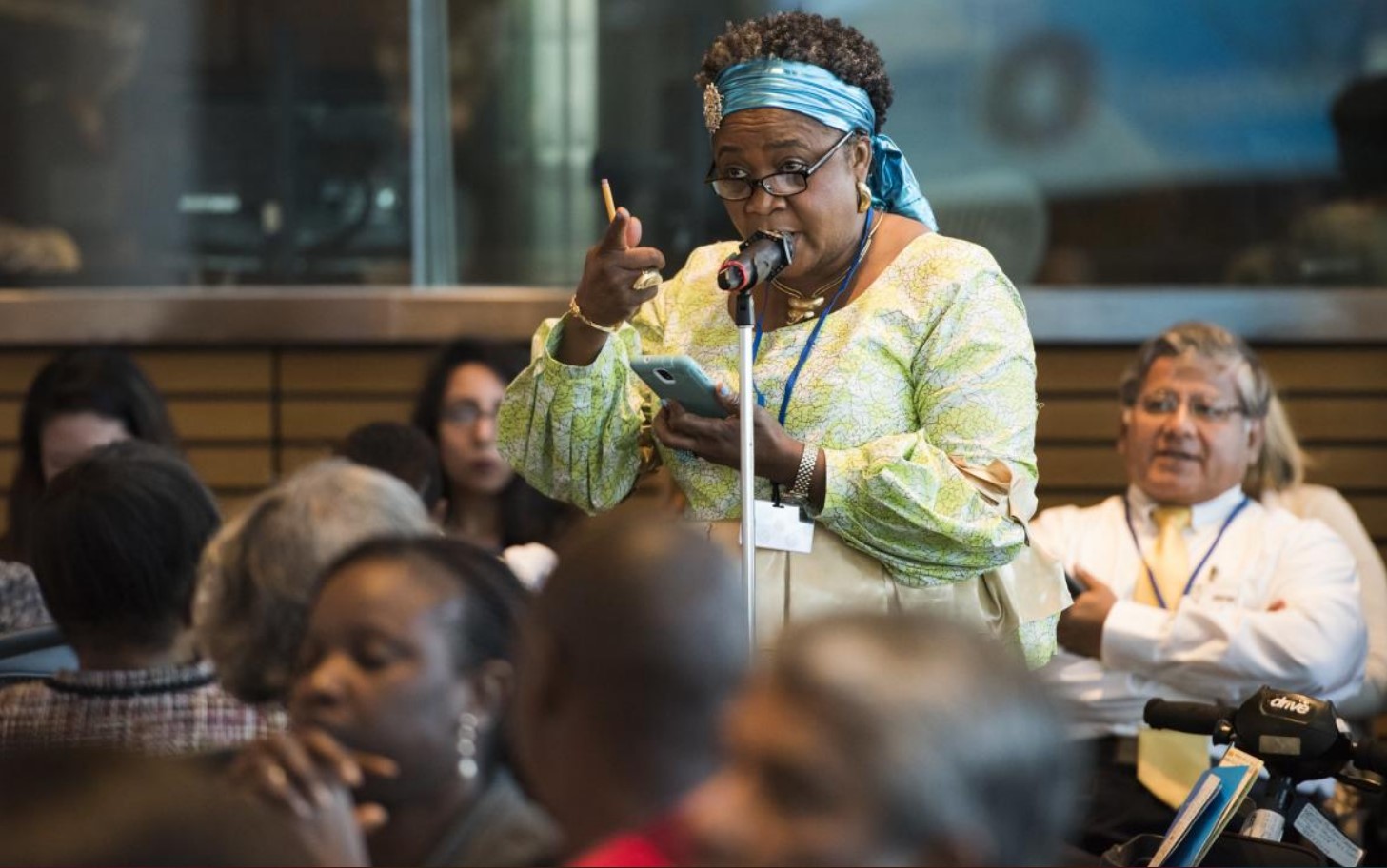A full portfolio for Education Out Loud
Civil society participation in policy dialogue is at the core of the Global Partnership for Education’s (GPE) work. Genuine education system transformation becomes possible when inclusive sector dialogue is a reality at national, regional and global levels.
This is why, since 2009, GPE has supported civil society organizations to strengthen capacities and implement cross-country learning and networking alongside advocacy activities. From 2009 to 2019, GPE supported civil society through the Civil Society Education Fund (CSEF) managed by the Global Campaign for Education (GCE).
In GPE’s 2017 financing and funding framework, the partnership acknowledged that its support to civil society was a core element of its approach to education, calling for GPE to double its funding for civil society and expand the diversity and reach of its grantees.
That call led to the establishment of the Education Out Loud fund. Implemented by Oxfam Denmark , Education Out Loud started operating in 2019 with the aim of strengthening transparency, accountability and civil society participation in decision making to transform education systems.
On top of financial and capacity development support for national education coalitions building on the CSEF program, Oxfam Denmark set up the infrastructure to support new civil society organizations, including national transparency and monitoring initiatives as well as transnational advocacy alliances. After four rounds of calls for proposals and 461 applications submitted between 2019 and 2021, the fund portfolio was finalized in early 2022.
Through three operational components and a learning agenda, Education Out Loud supports the work of civil society organizations through 84 grants in 60 countries.
With a total allocation of US$72.8 million, Education Out Loud is the biggest fund in the world for education advocacy.
Long-term investments that pay off
Since 2019, Education Out Loud has supported 53 national education coalitions, with this number expanding to 60 beginning in 2022.
The coalitions are representative of the diversity of voices in their countries: 100% of the coalitions have representation of women and girls’ groups, 98% of people with disabilities, and 41% of at least one member representing internally displaced persons/refugees.
Despite the unprecedented challenges to advocacy posed by the closures, disruptions and economic pressures related to the COVID-19 pandemic, the coalitions have nevertheless been instrumental in influencing 22 national policy changes in 18 different countries toward stronger human rights–based approaches during the first two years of Education Out Loud.
This success has only been possible because of GPE’s long-term investment since 2009, which has laid strong foundations for the kind of long-term and persistent strategies required for policy change to occur—strengthening the resilience of civil society organizations to weather crises and continue to mobilize political will for needed solutions.
For example, in Pakistan, years of advocacy campaigns implemented by the Pakistan Coalition for Education (PCE) and supported by the Asia South Pacific Association for Basic and Adult Education (ASPBAE) were instrumental in the 2020 federal education budget increase of 19%.
In Mozambique, Movimento de Educação para Todos (MEPT) together with UNICEF participated in the strengthening of the Multisectoral Mechanism for Reporting, Referral, Response and Assistance to Victims of Violence at School. The mechanism, approved in October 2020, seeks to help prevent structural violence against children, especially girls, in and around schools.
In Togo, the Coalition Nationale Togolaise pour l’Education Pour Tous (CNT/EPT) actively participated in the revision of the education sector plan by championing the integration of seven Sustainable Development Goal 4 targets into the plan, alongside policies to promote inclusive education and stronger community responsibility in the decentralized management of education.
The Togolese government integrated the right to education of children with disabilities and other previously neglected target groups into the new plan.
Initial impact of new civil society partners
Education Out Loud’s newest civil society partners focus their work on two key areas: strengthening monitoring and accountability practices of local communities and strengthening transnational advocacy to improve the wider policy environments for system transformation.
Through 20 grants, our partners are working on issues such as youth-led monitoring of education budgets, monitoring and transparency on the implementation of girls’ education and regional advocacy on tax justice for education financing, among many other themes.
In a short implementation time, our partners have already signed agreements with their governments to enhance data availability and transparency.
For example, HOPE Liberia is helping enhance access to disaggregated data on girls’ education in 15 education subdivisions.
In Madagascar, MSIS-Tatao signed an agreement with the government to secure promotion of transparency and accountability, which served as a platform for 127 community-based organizations committing to monitor education policy implementation in their locations.
Girls Not Brides is making unprecedented progress by creating dialogue spaces for the ministries of child protection and of education to discuss ending child marriage policies in West Africa.
ZINECDA is raising awareness on early childhood development through media engagements and discussion panels with ministries of education in southern Africa.
What’s next for Education Out Loud?
Three years into the program, there is still much to look forward to. Learning partners were recently selected to further implement the fund’s learning agenda in capacity development, learning exchange and harvesting of knowledge.
With two more years in the current grant cycle, grantees are busy implementing activities and showing early signs of impact, making us hopeful of the significant change civil society partners can have in securing the rights of the most marginalized communities.
This blog was originally published on GPE's website.
